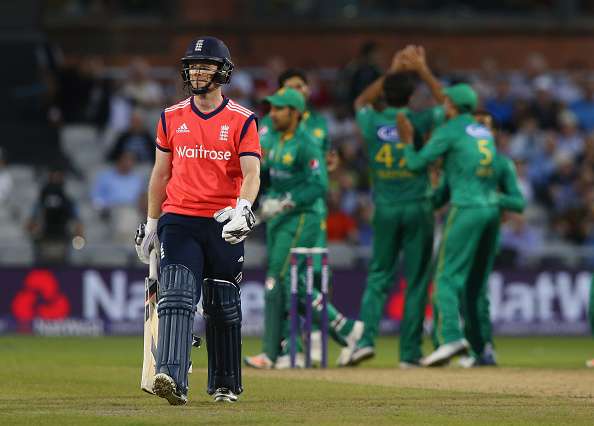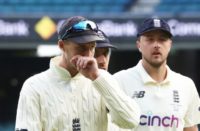The decision of Eoin Morgan and Alex Hales not to tour Bangladesh prompted one columnist to evoke the spirit of Mr Angry of Tunbridge Wells.
Some might say they should be more concerned about Mr Angry of Marlow, also known as Andrew Strauss.
The players have chosen to miss the upcoming tour on the grounds of safety and they had every right to make their own call, even though the ECB’s security advisor Reg Dickason, whose reputation relies on such judgments, assured them they need have no fears on that account.
As for that, was it mere coincidence that England’s ODI skipper was the first to inform us – nearly a month ago – that such a decision would not be held against them when it came to future selection, way before Dickason had even set foot in the country to see for himself what arrangements would be in place to guarantee their safety?
Morgan’s explanation for not going, that he was so spooked by the atmosphere he experienced in Dhaka prior to the 2013 general election and by a bomb blast near where he was playing an IPL match in Bangalore back in 2010 that he vowed never again to put himself in a position where security would be a distraction, sounded plausible at the time.
But not quite so much when it was pointed out that he had subsequently returned to play in the IPL five times since then.
Furthermore, in Morgan’s case, one could argue that if he really felt so strongly about that issue, for the sake of the rest of his squad it was his duty, as captain, to argue strongly that the tour should be called off, then offer to resign the leadership if it was not.
Former captains Nasser Hussain and Michael Vaughan have made it plain they believe the 30-year-old Irishman’s authority will be tarnished by his refusal to tour, claiming he has forfeited the right to lead them again.
Somewhat bizarrely, even Will Carling, the former England rugby captain, has had his tuppence worth on the issue saying: “Players who do travel won’t be able to look at you in the same way if you don’t go on a tour that’s been cleared as safe.”
Publicly, some of them have been quick to disagree.
Jos Buttler, who will take over the ODI captaincy in Morgan’s absence now and for who knows how long afterwards, stressed they want him back to lead their pursuit of the 2017 Champions Trophy and the next World Cup.
“As a colleague and a friend I completely respect his decision,” said Buttler, “as I know everyone in the dressing room does. Cricket is not the be-all and end-all. He has come to a decision he is comfortable with and people should respect that.” Ben Stokes has also offered his full support.
The key to Morgan’s future, of course, and that of Hales’, too, lies not with the players but with Strauss and while, for reasons of pragmatism the director of England cricket will be inclined to look slightly more favourably on the latter when it comes to future ODI plans (but, with Sam Billings, Ben Duckett and Jonny Bairstow waiting in the wings, only slightly) if I was Morgan I would start confirming alternative arrangements.
So far Strauss has limited his response to non-specifics, as in “the captain has greater responsibilities than just himself …” and, in the official statement confirming the withdrawal of the players, to a considered level of non-supportive support.
“While we understand and respect Eoin and Alex’s decision,” Strauss said, “we are disappointed that they have made themselves unavailable for selection for the Bangladesh tour.”
Yet, tellingly, he did re-iterate the general principle that giving up your place temporarily can allow someone to take it from you permanently.
What Strauss really thinks of Morgan we are unlikely to learn any time soon, and he will not wish to be seen as vindictive, but here are a couple of pointers to how he might be feeling right now.
In the immediate aftermath of England’s disastrous performance in the 2015 World Cup not only was the spotlight on coach Peter Moores, it was also firmly focused on Morgan.
As many who criticised Moores for his apparently stats-obsessed approach to the job also thought Morgan had been ineffectual as a captain and almost invisible as a leader.
The ice-man persona that he prides himself on in moments of crisis just seemed like anaemia when the pressure was on Down Under and, as for his form, it had completely deserted him, with scores of 0 v Australia, 17 from 41 balls v New Zealand, 46 from 42 deliveries against Scotland and 27 from 47 against Sri Lanka before rounding things off with a six-ball duck in the humiliating defeat to Bangladesh that ensured England’s early exit for the tournament.
Had Strauss sacked him at the same time as kicking out Moores, Morgan would have had no complaints, nor would anyone have batted an eyelid.
While many insist the influence of new coach Trevor Bayliss and assistant Paul Farbrace has been far more important, in approach and results, Strauss has been well rewarded for putting his own neck on the line by backing his under-fire skipper. Until now.
And one cannot avoid the parallels between the current situation and that which Strauss found himself in over and over again when trying to deal with the disruptive influence of the last player many considered a law unto himself.
Then, back in 2012, Kevin Pietersen’s seeming obsession with IPL cricket at the expense of playing for England chipped away at the skipper all summer long. And when ‘textgate’ happened, Strauss could take no more of what he saw as Pietersen’s disloyalty to him and to the cause and he dropped him for the final Test against South Africa even after he had played one of the great innings against them at Headingley, knowing how damaging that might be to the team’s prospects of ending the series with a draw and their No.1 status intact.
From the fact that Strauss extended the deadline for players to make their calls over Bangladesh, it is clear how desperate he was for Morgan to commit to the tour and how strongly he believed the captain should live up to the responsibility of leading the team there. And, after all, if Dickason said it was safe for all of them to go why should Morgan and Hales consider it any less safe for them?
It is inevitable that Strauss will now feel not merely “disappointed” but also, on a personal level, hugely let down and while that may not be the most logical, or even the fairest reason to bring to an end to the reign of captain Morgan, the resulting damage to the trust Strauss values almost above everything else might just turn out to be the one that matters.
This piece originally featured in The Cricket Paper, September 9 2016
Subscribe to the digital edition of The Cricket Paper here












